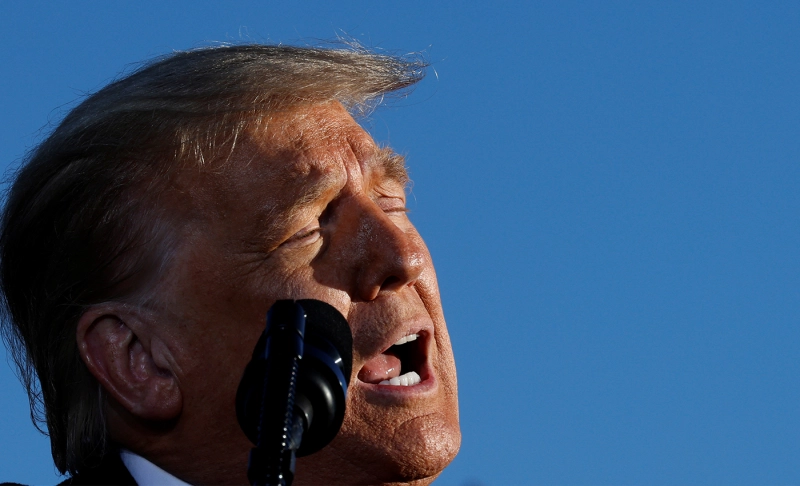By: Annie Priya
February 22 2021

The U.S. Constitution states that presidents can only be convicted following an impeachment trial and a vote in the Senate.
The U.S. Constitution states that presidents can only be convicted following an impeachment trial and a vote in the Senate.Former President Donald Trump is the first U.S. president to be impeached twice. Recently, he was charged with "incitement to insurrection" over the storming of the U.S. Capitol Building. Impeachment is a formal process where a sitting president is accused of wrongdoing. On February 13. 2021, Trump was acquitted in a vote of 57-43. Trump's lawyers initially argued that the impeachment trial could not proceed as it was unconstitutional, but the Senate voted 56-44, meaning that proceedings could legally go ahead. Impeachment is a formal, political process, rather than a criminal process, and the trials have different protocols. The Senate's website states that a committee of representatives acts as prosecutors before the Senate. "The Senate sits as a High Court of Impeachment in which senators consider evidence, hear witnesses, and vote to acquit or convict the impeached official. In the case of presidential impeachment trials, the chief justice of the United States presides." By constitutional law, a person can only be convicted with the agreement of two-thirds of the Senate members present. The President, Vice President, and all civil Officers of the U.S. are subject to removal from office upon impeachment for and conviction of treason, bribery, or other high crimes and misdemeanors. This process has remained the same since the first impeachment of Senator William Blount in 1799. Andrew Johnson was the first president to face an impeachment trial in 1868. Critics also claimed that Trump could not face impeachment because he was no longer in office. However, an explainer in Associated Press highlights that the Consitution does not mention whether or not a former president can be impeached, leaving the subject up to debate. Trump's opponents believed that impeachment was necessary even though he was no longer in office, as it would send a message about a President's conduct, and prevent them from holding office again.